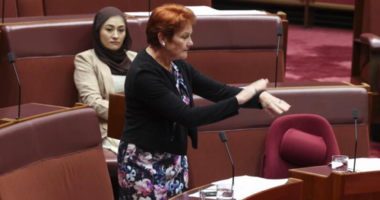Share this @internewscast.com
Here’s what you need to know about the new laws and why it is a “bittersweet” day for advocates.
What are the coercive control laws?
Under Queensland’s laws, it is illegal for an adult to use abusive behaviours towards their current or former intimate partner, family member, or informal carer with the intent to control or coerce them.
“This change today is about recognising that coercive control is a very serious form of domestic violence … the kinds of conduct we’re talking about [are] any pattern of behaviour that’s really designed to dominate or control another person in the context of a domestic relationship.”
How is coercive control defined?
“I think people still find it hard to articulate what’s happening to them to understand that it’s something that can be addressed and that there is help available,” she said.
“Having that significant deterrent there, that 14-year offence, I suppose, really reflects the seriousness that this is viewed by the justice system and the consequences that might flow.”
How did we get to this point?

Lloyd and Sue Clarke, the parents of Hannah Clarke, have worked to raise awareness of domestic violence and coercive control. Source: AAP / Darren England
Clarke, along with her three children, was killed by her former partner in 2020. He then took his own life. Since then, Clarke’s parents, Sue and Lloyd Clarke, have dedicated themselves to educating Australians on the dangers of coercive control and domestic violence.
In 2023, legislation was introduced to parliament following recommendations from the taskforce. In 2024, the landmark reforms were passed.
‘Bittersweet’ day for Clarke family
“We weren’t alone in this fight. Governments have acted, police have listened, and more resources are on the way. Now, it’s up to all of us — everyday Australians.”











